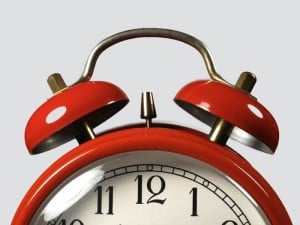 Right now, as I write this, I am just waking up from a nap. It's a Tuesday afternoon, about 4:30 p.m., and I run a small news organization. Today isn't a day off, either. It's a work day. I am waking up from a nap in the middle of a work day.
Right now, as I write this, I am just waking up from a nap. It's a Tuesday afternoon, about 4:30 p.m., and I run a small news organization. Today isn't a day off, either. It's a work day. I am waking up from a nap in the middle of a work day.

The question you're asking now is: Wait, what?
And the second question is: No, really, what now?
I have a team of six. Some money at stake. News partners. The whole thing.
What the hell am I doing napping during business hours?
I'm not surprised to hear your questions. There's this idea going around these days that people who run a startup or a company have to put in 180-hour work weeks. If you're not, you're doing something wrong.
I'm here to tell you that this is both:
- Not true.
- A sign that most executives are too exhausted to even realize that there are only 168 hours in a week.
I don't care if you work 40-hour work weeks or 140-hour work weeks. At the end of the week, I don't care about the hours.
I only care about the work.
Look: People who lead companies are competitive. This is no surprise. They hear word that so-and-so across the road is working 16-hour days, and they think: I've gotta beat that! I have to work 17-hour days! I have to keep up!
But all that really matters is the end result. Screw the competitor across the street. Put in the hours you need to put in to get out the work your customers want.
And another thing: Why work in a perpetual state of sleep deprivation? I used to just work through being exhausted. The problem was, it resulted in crappy work, which resulted in more work the next day to correct the errors I'd made due to the previous day's exhaustion.
What I decided to do instead was to re-prioritize. Most of my exhaustion was due to keeping a bad routine. I'd go to bed a 10 one night, and 3 a.m. the next. That works for college kids. It doesn't work for people who lead companies.
So now I'm on a specific schedule. Up at 5:45 each morning. Hammer out a few emails or tasks before hitting the gym. Then a big block of focused work in the morning. A break for a lunch meeting. Then a big block of focused work in the afternoon.
Then an actual break. Maybe a nap. Maybe an hour to read, or to waste online.
Then one last sprint of work before dinner. Followed by some wrap-up things — maybe a few more emails — before bed.
Then it's 10. And I'm done — like, "pencils down" done. It's bedtime.
I still get in my work each day. But it's work where the work has my full attention. The work is good, and I don't spend a quarter of my time tomorrow fixing today's screw-ups.
What I've found is that rest — combined with a lethal bit of focus — can be a killer combination.
If there are people out there who can work 18-hour work days and sleep normally, then bravo. You're the cyborgs who've come to make the rest of us look lazy. I kneel before you.
But I'm guessing that your work day actually includes several unstructured breaks for time-wasters. Maybe a couple of hours worth. That's okay. We all need those moments during the day to step back from the work and hit refresh.
What I'm suggesting is that you build structure within your day when you can do that. But when you're working, turn off everything else and just focus on the work.
You don't need to work crazy hours. You don't need to work tired.
Go close this tab. Go find a couch somewhere. Take 30 minutes for yourself.
Then get back to work. See if you notice a difference in your work.
I promise you: You will.
TAKEAWAYS
More is not more. 40-hour work weeks? 80-hour work weeks? 120-hour work weeks? More is not more. Do whatever you need to do, and then step back and be a real person for a few hours each day. Your friends, family and co-workers would probably like to see you at a moment when you're not strapped to your desk, I'm guessing. And you'll come back from those pauses with new energy and ideas.
Focus matters. There is no substitute for focus. And focus requires a proper amount of sleep in advance. Focused, attentive, well-rested people produce good work. At the end of the week, that work is all that matters.
Done is a choice. If you're like me, one of the reasons you're refusing to stop working is because you don't think you've nailed the work exactly like you want. That's crap. You can shoot for perfection, but all your clients and users actually care about is "done." And only you can choose when you've hit that mark.


![The Monday Morning Routines of 7 Successful People [Infographic]](http://53.fs1.hubspotusercontent-na1.net/hubfs/53/00-Blog_Thinkstock_Images/monday-morning-routine2.png)

![The Most Invaluable Websites for Promoting Creative Work [Infographic]](http://53.fs1.hubspotusercontent-na1.net/hubfs/53/00-Blog_Thinkstock_Images/ThinkstockPhotos-487721838-101044-edited.jpg)
![Why Your Agency’s Culture Matters — And How to Build One That Lasts [Free Ebook]](http://53.fs1.hubspotusercontent-na1.net/hubfs/53/Culture-1-291661-edited.jpg)



